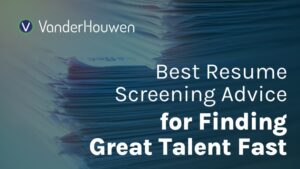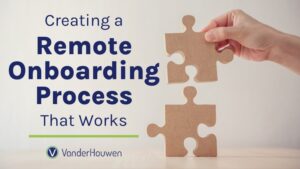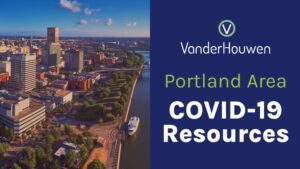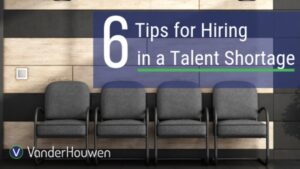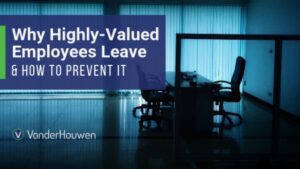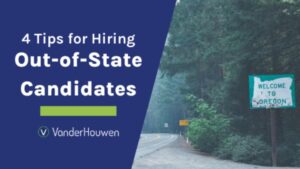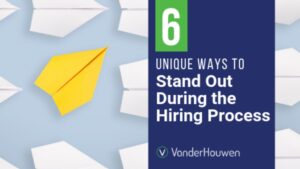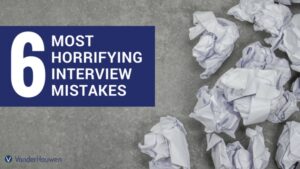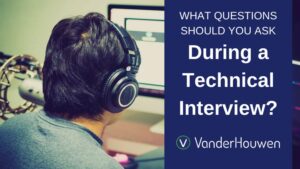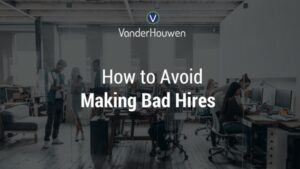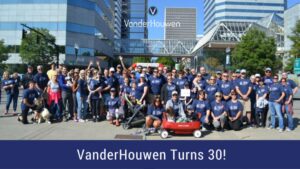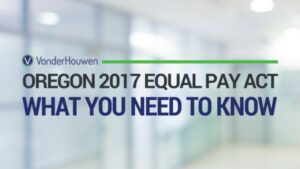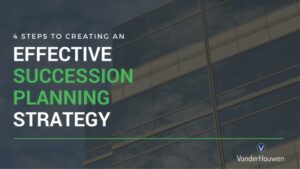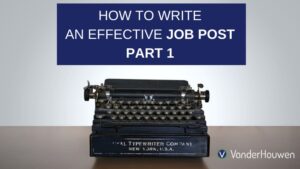Resume Writing 101
If there’s one thing the VanderHouwen team understands, it’s resumes. Over the years, we’ve reviewed, edited and advised on thousands of resumes. We understand what it takes to make a resume stand out from the rest.
Find out our answers to your most common resume questions:
- Does the summary match the job requirement?
- Is the overall experience appropriate and sufficient?
- Is there any critical experience missing?
- Are there examples of communication and teamwork skills?
- Are the job titles similar to the requirement?
- Is there effective use of tools, systems, and applications?
- Is the required education or certification present?
- Is the resume clear, easy to read, and without errors?
- Are there explanations for gaps in employment?
- Is the information in the summary sections or cover letter reflected in the body of the resume?
- Is there upward mobility as your career has progressed?
Crafting a compelling and effective resume is an important step in the job seeking process, as this is often the first hurdle candidates need to jump to be considered for a role.
How long should my resume be?
A resume should be a 1 – 3 page synopsis of your accomplishments, skills, education and work history. If you require a longer resume due to amount of work history, make sure you limit it to no more than five pages and that every single word is necessary. If someone is going to take the time to read all five pages, they’re going to expect an amazing career trajectory. If possible, keep the focus of the resume on the last seven years of your career. For experience beyond seven years, including an “Additional Experience” section is most effective. Simply list out the dates, company, location and title of each position. This gives the Hiring Manager an opportunity to ask you about this experience during the interview.What kind of language should I use in my resume?
Avoid using too many buzzwords or flowery vocabulary that doesn’t match how you would speak in person. Use action words and phrases such as “designed and developed,” “led a team,” and “delivered results” versus “participated in” and “worked with.” To keep a resume short, you must be succinct so try to keep it simple and pointed. The focus of each position should be your key accomplishments and how you impacted an organization in a positive way.Do you have a sample template I can use?
Absolutely! After seeing what a difference a strong resume can make for a candidate, we developed a resume template that we encourage all our candidates to use. You can download it here.Should I write a cover letter or an executive summary?
A cover letter is a great way to market yourself and describe why you’re the perfect fit for a particular position. It also allows a bit of your own style and personality to come through. However, Recruiters and Hiring Managers may not always take the time to look at an extra attachment. Adding a brief “Skills/Executive Summary” section to your resume allows you to summarize information from a cover letter. Review the “Required Experience” section on the job for which you are applying and make sure the summary reflects your experience in those areas. Using the same terminology from the job description is helpful, especially in situations where human resources personnel are the first to review your resume. Many internal Recruiters screen resumes for multiple departments within an organization and may not have the expertise required to understand the details of each job requirement. They will be looking for key words and phrases listed in the job description.How can I make my resume search friendly?
Many Recruiters and Hiring Managers use databases with advanced keyword search functions to screen resumes. They will run searches with specific words, phrases and titles to quickly identify the best matches for the position. Your resume should include keywords for “on-the-job” skills, programs, software and industry terminology that accurately reflect your experience. But caution! Be mindful of adding too many buzzwords.Should I list my skills separately?
A skills summary section is important whether your desired position is function, technical or a combination. This section should summarize your functional business skills, experience with various tools, programming languages, applications, etc. Insert the summary near the top of your resume for quick and easy viewing. A skills summary section can highlight skills like analysis, communication, teamwork, and leadership. A technical summary can list specific software applications, tools and programming languages. It is important the terms you list in the summaries are represented in the body of the experience section. Recruiters and Hiring Managers not only look to see whether you have the tools they need, but also how and where you have used them.Should I include all my work experience?
Try to limit yourself to the last seven years of your career. Make sure to list your professional positions in reverse chronological order, starting with your most recent position first. Using bullets to list your direct experience draws the eye to each individual accomplishment. For every position, include the type of projects you have worked on, your individual role, your overall contributions and tools you have used. If you have trouble summarizing your experience, you might consider pulling information from your past job descriptions or annual reviews.What should I include for education and training?
This section should include degree type, completion date, major/minor, school name, and location. If you are still working on your degree, use the same information, but rather than completion date, include “expected date of completion.” If you’ve completed a few college courses but not a degree, you can list the details as “coursework.” List training and certifications in a separate section including dates of training or receipt of certification. Always include the acronym with the title because Recruiters may search for the acronym in lieu of full title. For example, Project Management Professional (PMP) or Microsoft Certified Systems Engineer (MCSE). Closing your resume with education and training is recommended. I have multiple skill sets and I’m open to a variety of jobs – how can a single resume showcase that? If you are a multi-faceted candidate and are willing to look at various types of positions, we suggest creating a resume for each type of role. For instance, if you are a Programmer who has also worked as an Architect and Project Manager, you may want to create a development resume, an architect resume, and a project management resume.What are the main things that recruiters and hiring managers look for in a resume?
During the screening process, Recruiters and Hiring Managers look for reasons a candidate is a good fit but they also look for reasons a candidate is NOT a good fit. This review criteria may include:- Does the summary match the job requirement?
- Is the overall experience appropriate and sufficient?
- Is there any critical experience missing?
- Are there examples of communication and teamwork skills?
- Are the job titles similar to the requirement?
- Is there effective use of tools, systems, and applications?
- Is the required education or certification present?
- Is the resume clear, easy to read, and without errors?
- Are there explanations for gaps in employment?
- Is the information in the summary sections or cover letter reflected in the body of the resume?
- Is there upward mobility as your career has progressed?
Crafting a compelling and effective resume is an important step in the job seeking process, as this is often the first hurdle candidates need to jump to be considered for a role.
Need help getting started? Check out our Resume Sample Template for inspiration!




































